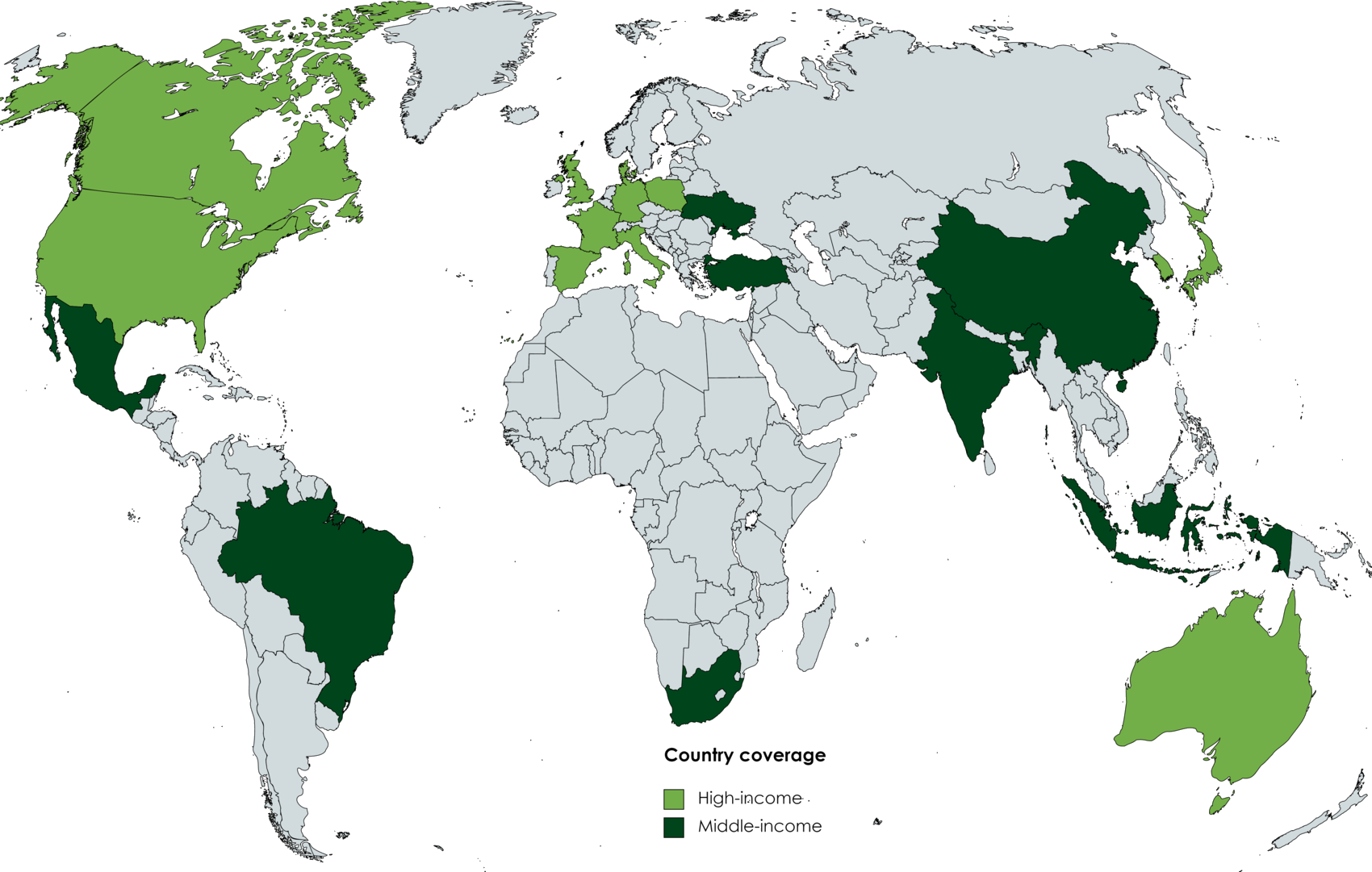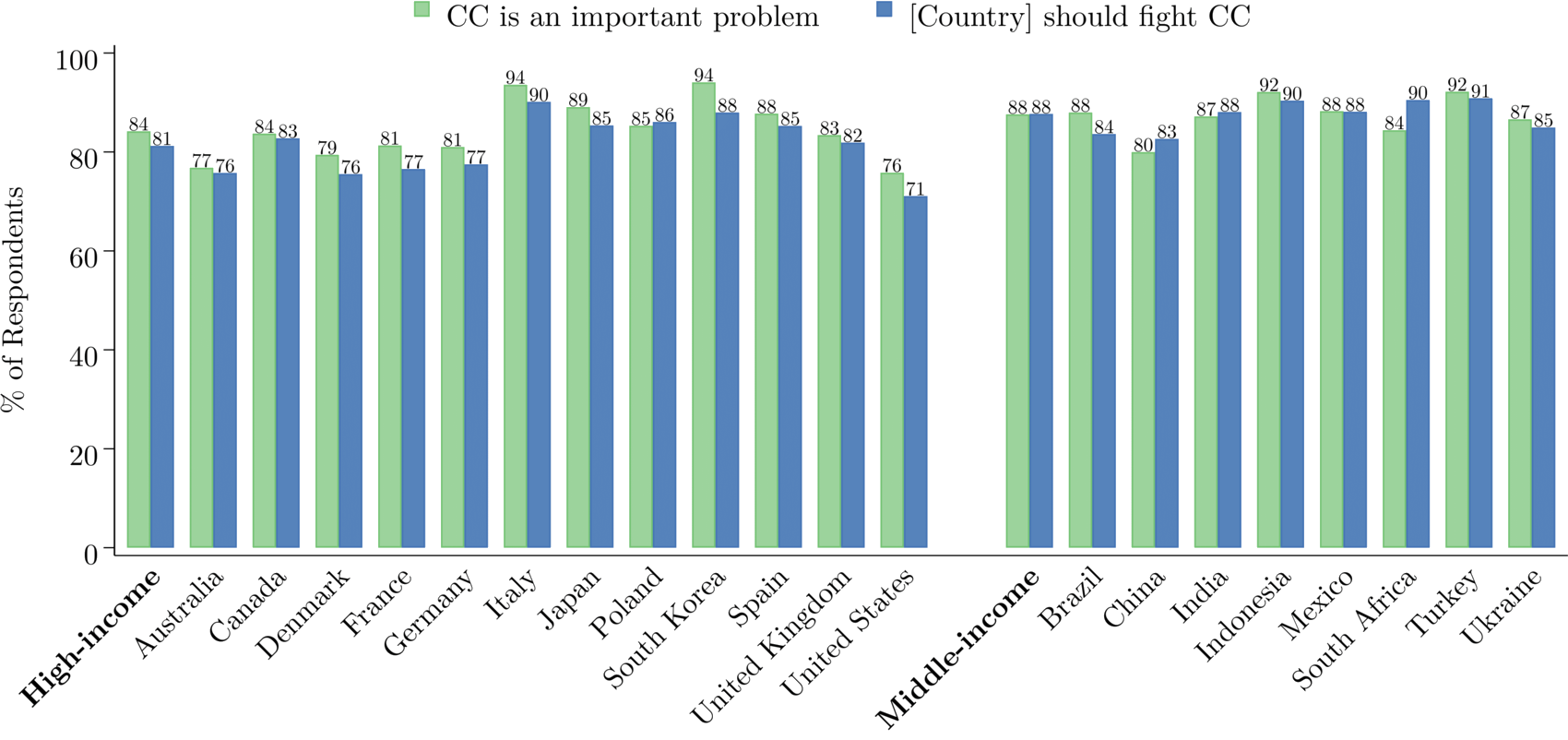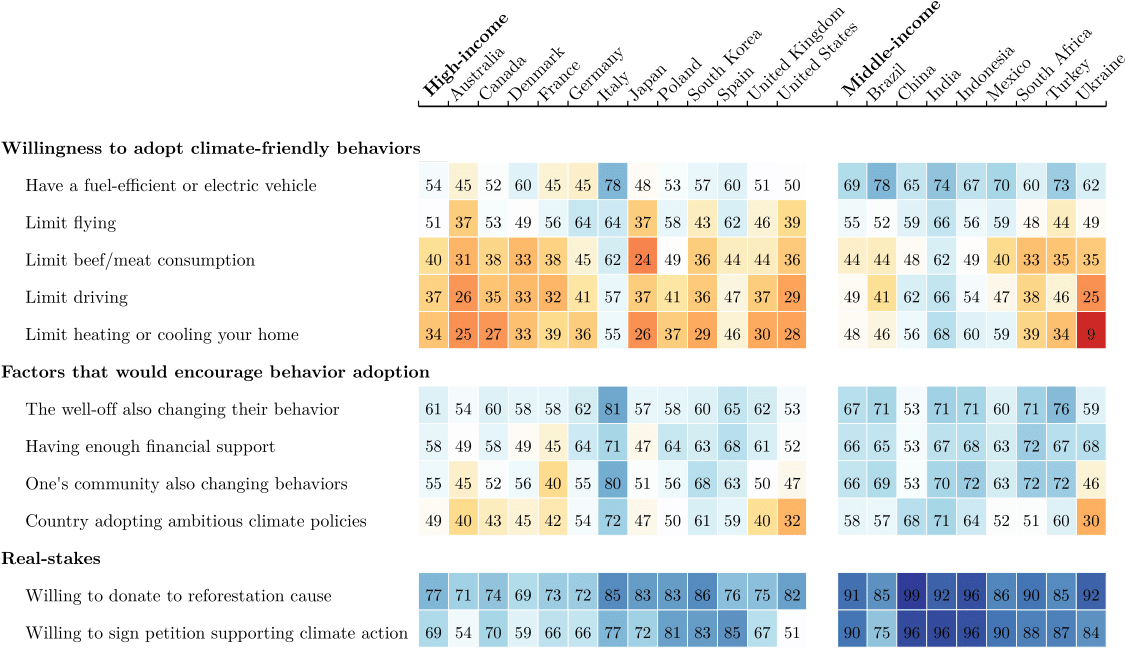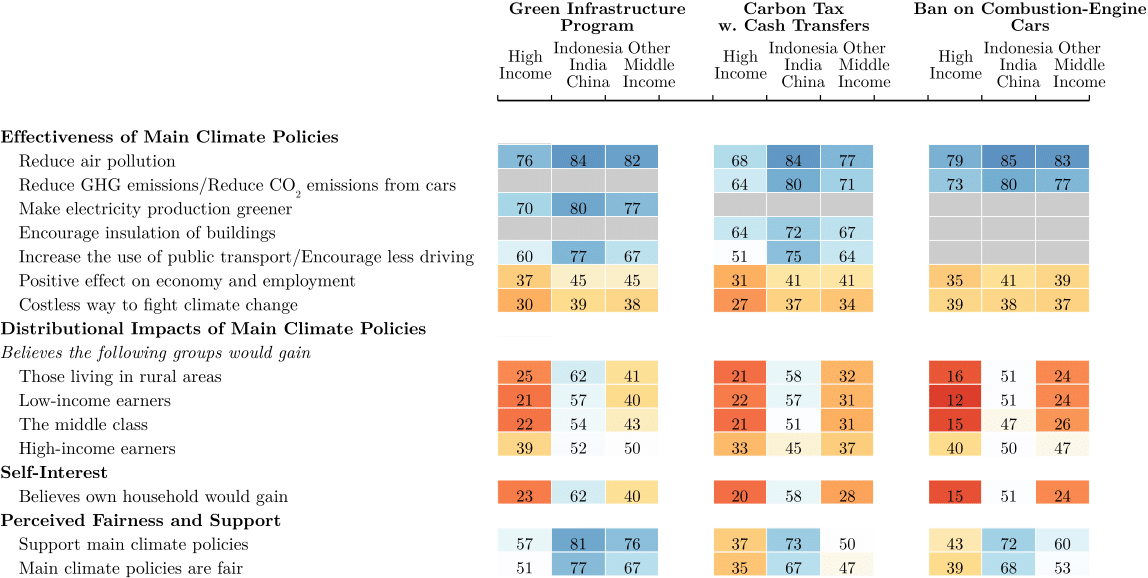International Attitudes toward Climate Policies
Click here to directly explore results in details
Climate policies have been difficult to implement even when the objective of limiting global warming is broadly accepted. Therefore, understanding the determinants of public support for climate policies is crucial for policy makers devising and implementing strategies to achieve net zero emissions targets.
But while commitments and pledges to curb climate change are growing, policies to achieve these goals are still lagging behind. With currently implemented policies, average temperatures are still projected to rise to around 2.7°C by 2100 according to the IPCC.
Explore the results from our study!
Results: 3 main things to do for Governments
- Accelerate the availability of low-carbon alternatives
- Green alternatives need to be made available in priority to exposed households
- Making public transport widely available increases support for bans of combustion engine cars by about 10% on average across all countries.
- Ensure that vulnerable groups are not disproportionally affected by climate policies Carbon pricing can be strongly supported if revenues are:
- used to finance green infrastructure and low-carbon technologies
- redistributed to low-income or exposed households
- Inform citizens about how climate policies work and who they affect
- Informing about the consequences of climate change does not improve support, but infoirming about how policies work does
- Information campaigns should explain how the policies are effective at reducing emissions, and who will win or lose from the policy
Look at support by group:
Show support for in group by





